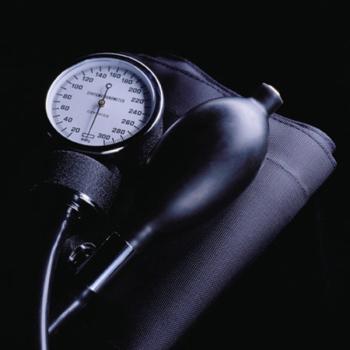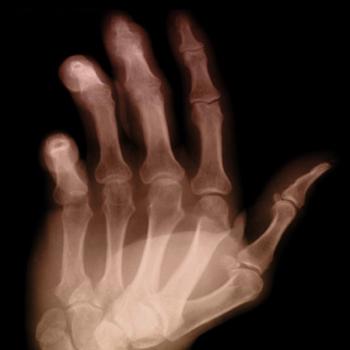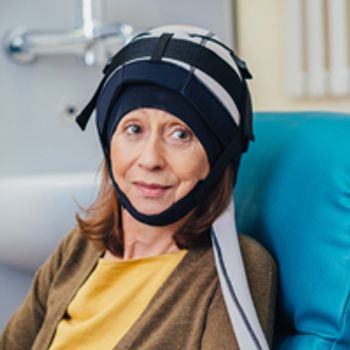
Ninety percent of patients with cancer may experience chemotherapy-induced peripheral neuropathy (CIPN) during treatment, and many will see this adverse effect long after treatment ends.

Ninety percent of patients with cancer may experience chemotherapy-induced peripheral neuropathy (CIPN) during treatment, and many will see this adverse effect long after treatment ends.

Can a class of drugs commonly prescribed to help lower cholesterol levels protect against breast cancer? A study recently presented at the European Society of Cardiology conference in Barcelona, Spain, offers interesting results.

The authors noted that although some studies have shown improvement in breast cancer outcomes from extending treatment with AIs beyond the initial 5 years after diagnosis, there is not much research on the toxicity profile of extended use.

In some ways, it’s the down side of optimism: A recent study has found that older people sometimes think they are capable of more activity than their caregivers say they are.

A 15-year brain tumor survivor offers advice and discusses the advances that have been made since his diagnosis.

The US Preventive Services Task Force (USPSTF) does not agree with the need for yearly full-body skin exams, which many healthcare providers support.

Anne Llewellyn had been a nurse in the Emergency Department and Respiratory Intensive Care for almost 40 years when she was diagnosed with a central nervous system brain tumor.

A recent study has shown that the cancer risks for women with BRCA1 and BRCA2 mutations depend on the extent of the woman’s family history of cancer and the position of the specific fault within the gene.

Communication is key when it comes to discussing genetic information and hereditary cancers with family members.

A recent study looked at the long-term health-related effects of treatment for patients with localized prostate cancer, finding that some can continue for more than 10 years after treatment.

The incidence of prostate cancer is 60% in black men in the US than in white men, and they are twice as likely to die from the disease.

As presented at ASCO 2017, a recent study found that psychological intervention can substantially lower the fear of cancer recurrence in survivors.

The traditional Chinese exercise, tai chi, may assist breast cancer survivors experiencing insomnia.

Examining the experience of 3 women, aged 24 to 28, with stage III breast cancer, oncology nurses from the University of Texas at Austin School of Nursing aimed to gain more insight into the experience of younger woman with breast cancer.

Patricia Jakel, RN, MN, AOCN, ended up on the opposite of the bed than she was used to when she was diagnosed with stage III invasive lobular breast cancer.

Nurses at the Sidney Kimmel Comprehensive Cancer Center at Johns Hopkins implemented an intervention to reduce the missed cases of sepsis in oncology patients, as presented at the 2017 Oncology Nursing Society's Annual Congress

A recent trial is evaluating a new drug to treat cachexia, testing its efficacy in dogs currently.

A recent study indicates that the use of bilateral mastectomy to treat women with ductal carcinoma in situ is unnecessary.

A recent study has found correlations between common comorbidities (hypertension, heart disease, diabetes, etc) and ovarian cancer.

Second primary cancers that occur in pediatric, adolescent and young adult (AYA) patients are deadlier than those that occur in older patients.

The Paxman Scalp Cooling System has been granted FDA clearance to reduce hait loss in patients with breast cancer recieving chemotherapy.

A shorter length of sleep may lead to an increased risk of death from prostate cancer, according to a recent study presented at the 2017 AACR Annual Meeting.

Fewer people are dying from cancer than years ago, according to a recent study.

For patients who may be unable to afford access to scalp cooling systems for chemotherapy-induced hair loss, the nonprofit organization Hair to Stay can help with their grants.

A study recently found that patients treated for breast cancer may experience decisional regret about their fertility choices.

A poor diet earlier in life could be linked to a greatest risk of breast cancer before menopause.

A recent study found that older patients with cancer had a greater risk of frailty, osteoporosis, and vitamin D insufficiency.

A new study found that high breast density surpasses other risk factors for breast cancer.

At the 2017 Cancer Survivorship Symposium, findings from a study were shared which suggested patients with lung cancer do not receive supportive and survivorship care.

Despite recommendations to do so, distribution of survivorship care plans still has not increased for survivors of cancer, according to a recent study.